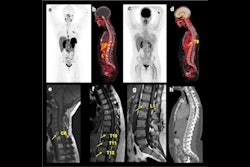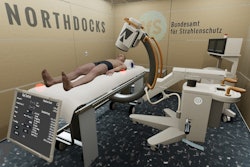Dear AuntMinnieEurope Member,
Top officials at the U.K. Royal College of Radiologists (RCR) must have been shocked by the scale and strength of the reaction to their decision to increase membership rates by 10% to £609 (€708) a year. Social media was abuzz when the news broke.
No doubt this is a tough time for societies and associations worldwide. On 16 April, the American College of Radiology said it had reduced its workforce by 11%, laying off 45 staff. Rising costs must be having a profound impact on the RCR and other groups, but members cannot be expected to bear the full brunt of the crisis.
Radiation protection remains a major concern in interventional radiology, but a welcome development has come from Germany. A free virtual reality app offers the opportunity to learn and practice the correct behavior of medical staff and the proper use of protective devices.
Debate continues over how to implement MRI into breast cancer screening programs. Information about women's experiences and their willingness to reattend is vital here, so a Dutch study in European Radiology is bound to generate attention. Our news report includes analysis by two co-authors, including Dr. Ritse Mann.
Swedish researchers have also published novel findings about this patient group. Recurrence-free breast cancer survival is less likely in women with high breast density compared with women with low density, they say. These results were especially evident for women with screening-detected cancers, but they reported no association between mammographic tumor appearance and recurrence-free survival.
In another recent European Radiology article, researchers found that gallium-68 DOTATATE PET/CT appears to be the best approach for detecting spinal bone metastases in patients with certain neuroendocrine tumors.
Philip Ward
Editor in Chief
AuntMinnieEurope.com




















